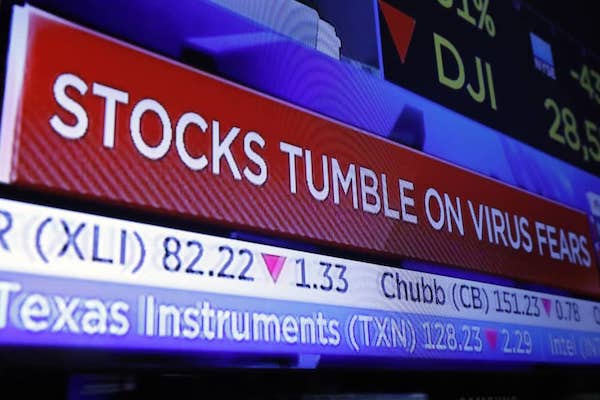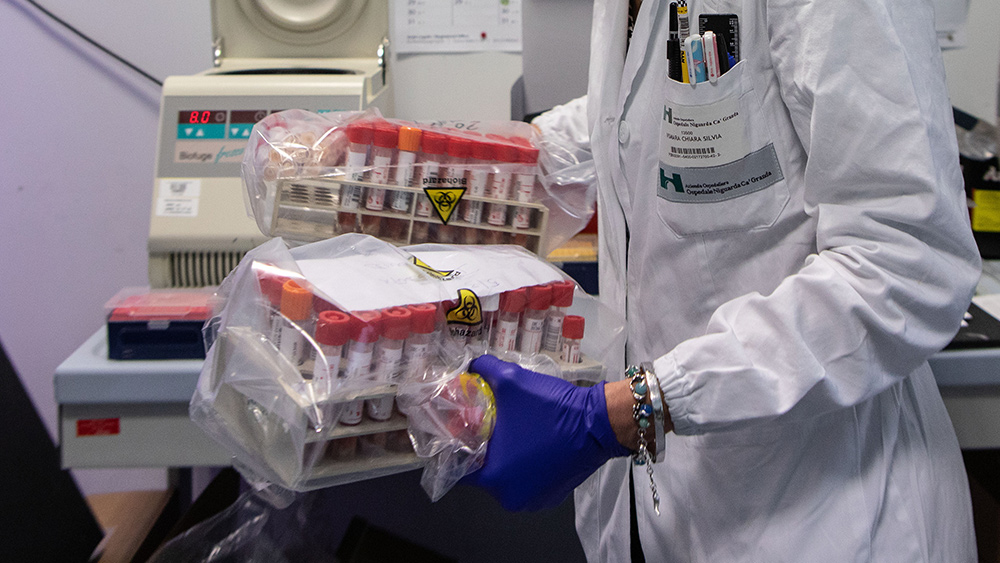The Biggest Thing Since 1776 is Happening NOW… How the Coronavirus Will Spark the Greater Depression
by Doug Casey, International Man:

International Man: Panicked people are emptying supermarket shelves and stockpiling toilet paper. Hand sanitizer is impossible to find anywhere.
Is the impact of the fear and hysteria greater than the risk of the virus itself?
Doug Casey: Yes, very much so. The virus itself is what we can call a first-order effect. I don’t want to spend much time talking about the flu itself because, even though worst-case numbers like a million deaths in the US are tossed around, it’s not the biggest problem.
The second-order effects—like the economy shutting down from hysteria—are actually much more serious.
The third-order effects—new laws and state action—will have the longest-lasting consequences. We can talk about them in a minute.
As far as the virus itself is concerned, I’m sure everybody has read lots of articles and listened to podcasts from experts. So knowledge—such as it is—about the virus is fairly widespread. Except very little is certain, even now. FWIW, I say that as a lifetime science aficionado, reading in many areas of science for years.
Just in the last generation, we’ve had hantavirus, the bird flu, swine flu, Zika, West Nile, MERS, SARS, and H1N1. We’ve also had anthrax—which everybody’s forgotten about. Of course, it’s a bacterial infection as opposed to a viral one. They’ve all had their day in the dark sun of mass hysteria.
The point I’m making is that there are thousands of viruses floating around. They mutate constantly. Most of them pass through the population and go viral, so to speak—and we never even notice that they exist.
Now this one is said to be ten times worse in terms of death rate than a normal flu. Is that true? It seems that if you get it, your odds of dying are much worse but still minimal. Normal seasonal cases of the flu kill maybe 50,000 people a year in the US. But we don’t even notice that.
So what’s the worst-case scenario regarding this virus?
Nobody really knows because it is a new virus. They’re still figuring it out, but maybe between 1% and 2% of the people who get it will die, mostly the old, the sick, and the obese. If you’re in one of those categories, you should take it very seriously.
The interesting thing about this virus is that very few have died so far, anywhere; the numbers would have been unnoticeable outside of the media hysteria. Not even a rounding error on a rounding error. The important thing is that it’s said to be spreading exponentially, doubling every three days or so. So maybe things will change radically in a week. Or not. It’s said at least 50% of the US population will get it, although 80% of them will be completely asymptomatic.
If you read all the conflicting reports from China, Italy, and other places, it’s pretty clear we don’t know much. There’s just one thing for absolutely certain: The world has been gripped by a genuinely titanic and insane hysteria.
Anyway, even the worst case from first-order effects—people dying— is being dwarfed by the second- and third-order effects. The important thing about this virus is not the first order of effects—people that it kills directly. It’s the consequences of the hysteria that it’s causing.
That’s what’s really serious.
International Man: What are the secondary or tertiary effects of the coronavirus?
Doug Casey: We just talked about the first-order effects of the virus. Death for a relatively small number of people. An unfortunate part of life on this planet.
Let’s talk about second-order effects. What the virus—or rather the hysteria surrounding it—is doing to people’s livelihoods.
Airlines are shut down. An airliner, all in, costs them $10,000 a day, whether they use it or not. Same, to some degree, for hotels. A restaurant closes down, but the owner still has to pay his mortgage. And the staff mostly lives on tips. How are they going to pay the rent—and if they don’t, then how’s the landlord going to pay his mortgage? The consequences of businesses shutting down, and going bust, are just huge.
For many years, the US has been what’s called a “service economy.” Most people don’t produce actual hard goods like houses, cars, food, and raw materials. We mostly do services. It’s a so-called “consumer economy.” A rather stupid concept actually—the term takes the emphasis off production and puts it on consumption.
When you have a depression, what happens?
Consumers cut back consumption to the very barest basics.
Services are the first to go. Hospitality and travel alone is supposedly ten percent of the world’s economy. People will now keep their cars for years, and maybe, sell the spare car. Forget about new wardrobes. The clothing and fashion businesses get slammed. Everyone will try to sell their big showy houses and get something practical.
Distortions cranked into the economy by decades of money printing are going to be liquidated. Everybody is going to cut back to the basics. A lot of people are going to have to find new ways to support themselves.
Read More @ InternationalMan.com
Loading...


